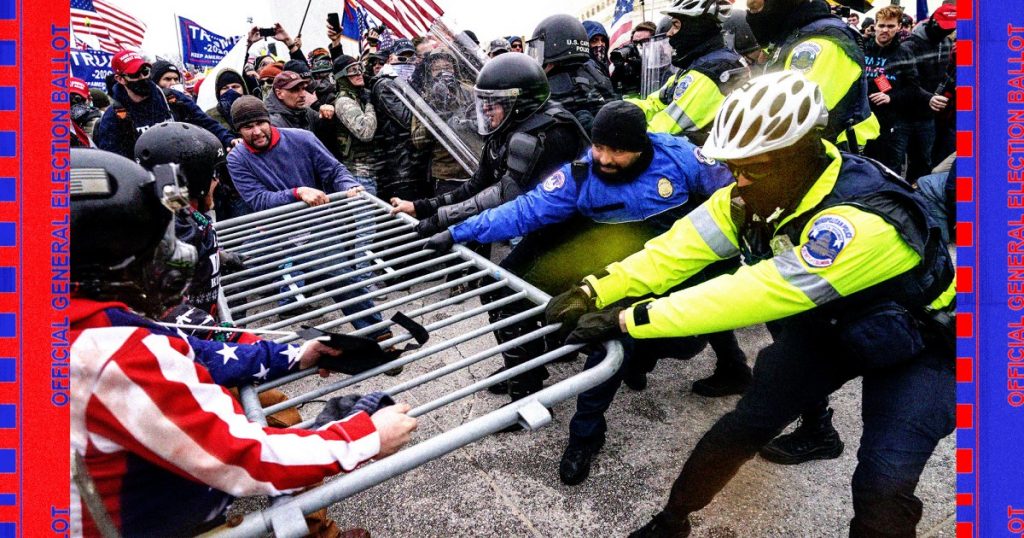What Makes People Willing to “Fight or Die” in an Election?
Mother Jones; John Minchillo/AP
Fight disinformation: Sign up for the free Mother Jones Daily newsletter and follow the news that matters.What makes people want to participate in coup attempts like January 6—and fight or die for a politician, even after they lose? With November’s impending election, it’s a timely question for a divided country. California State Polytechnic University, Humboldt, social psychologist Amber Gaffney and a team of collaborators took on the question of what makes someone willing to risk their life for a candidate in national elections, using survey results from people on the left and right around the 2022 elections in both the US and Brazil, which had its own version of January 6 months after authoritarian then-President Jair Bolsonaro’s loss.
The study, which was published in a 2023 Translational Issues in Psychological Science journal article, surveyed US voters before the 2022 midterms. It found that those who said they’d fight or die for a candidate often had a few things in common:
They felt that either Joe Biden or Donald Trump represented what their party should stand for,
They viewed their political party as a unified group,
And they felt their group was deprived in comparison to others —like members of a different political party, or people who don’t share the same religious beliefs.
With these factors combined, according to a statistical analysis, Gaffney and her team found that the will to fight or die for a politician was a little higher among Republicans than Democrats. Another 2023 study also found that around eight percent of Americans surveyed felt it was extremely likely that political violence would be justified in the coming years.
“When you have a leader who’s very representative of your group, almost to the point of being a figurehead, that leader helps to tell us who we are,” Gaffney told me. If the leader says the group is being harmed—or that they themselves are, “it makes it hard for us to feel good about who we are.”
The findings from the US were similar to those from Brazilian voters, taken after the final round between Bolsonaro and now-president Luiz Inácio Lula da Silva, which Bolsonaro lost by a margin of less than 2 percent.
Since the 1960s, Gaffney said, decades of research have shown that “feelings of deprivation increase anger and increase people’s desire to mobilize on behalf of a group.” But feelings of deprivation don’t necessarily mean your needs aren’t being met. Gaffney noted that Trump didn’t directly call for people to storm the Capitol in public speeches—he just insisted that he and his supporters had been deprived of a fair election. “If the leader has been saying, ‘we’re being deprived of all of these rights, particularly our sacred right to vote,’ then the interpretation can be, ‘We’re willing to do this on behalf of this leader.”
For a politician’s backers, even strong statements—like Biden calling Trump a “loser…willing to sacrifice our democracy” at his first campaign event of the year—can register as personal attacks. Trump backers’ response to critiques of his conduct and views, Gaffney said, could simply be to go to greater lengths for to their candidate. “Followers think of it as a criticism, not just on the leader, but on the group as a whole,” Gaffney said. “Then you see galvanized support.”




